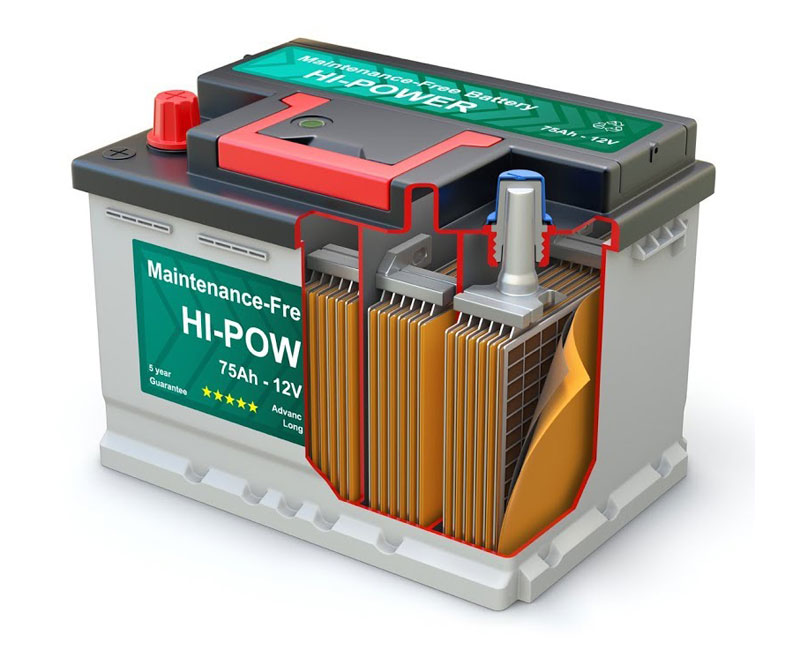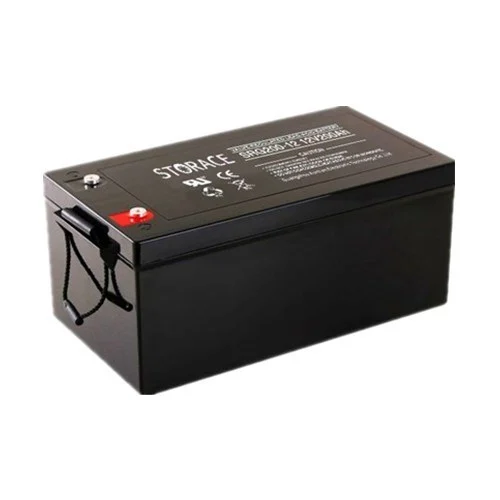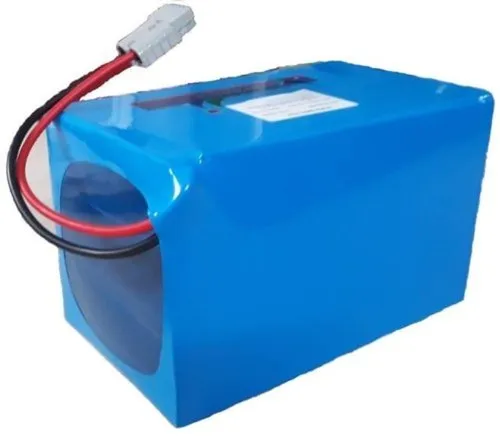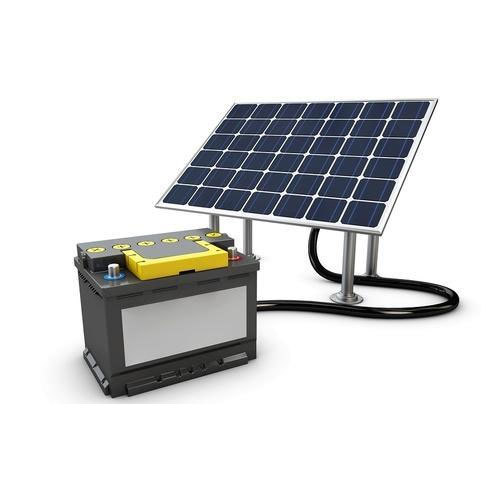Solar Batteries
When it comes to solar energy storage, lead-acid batteries and gel batteries are common choices.
Here’s a comparison of both types along with the sizes of individual batteries in a tabular format:

Solar Batteries
Lead-Acid Batteries
Lead-acid batteries are traditional energy storage solutions known for their durability and cost-effectiveness. They can be flooded or sealed, with flooded batteries requiring maintenance like checking water levels, while sealed batteries are maintenance-free.
Typical Battery Sizes:
Small Size: 50 Ah (Ampere-hour) to 100 Ah
Medium Size: 100 Ah to 200 Ah
Large Size: 200 Ah to 400 Ah
Applications: Widely used in off-grid solar systems, residential setups, and small to medium-scale commercial installations.
Solar Batteries
Gel Batteries
Gel batteries are a type of valve-regulated lead-acid (VRLA) battery that uses gel electrolytes for improved safety and maintenance-free operation. They are known for their deep cycling capabilities and enhanced performance in off-grid applications
Typical Battery Sizes:
Small Size: 50 Ah to 100 Ah
Medium Size: 100 Ah to 200 Ah
Large Size: 200 Ah to 400 Ah
Applications: Ideal for off-grid solar systems, remote telecommunications, and critical backup power solutions.

| Battery Type | Size Range | Description |
|---|---|---|
| Lead-Acid Batteries | Small: 50-100 Ah, Medium: 100-200 Ah, Large: 200-400 Ah |
Traditional energy storage solutions offering durability and cost-efficiency, commonly used in off-grid setups. |
| Gel Batteries | Small: 50-100 Ah, Medium: 100-200 Ah, Large: 200-400 Ah |
VRLA batteries with gel electrolytes for deep cycling and maintenance-free operation, ideal for off-grid applications. |

Solar Batteries
Lithium batteries
are advanced energy storage solutions that have gained popularity in various applications, including solar energy systems. Here is an overview of lithium batteries:
Lithium batteries are a type of rechargeable battery that uses lithium ions to generate electrical energy. They are known for their high energy density, long cycle life, lightweight design, and rapid charging capabilities. Lithium batteries offer superior performance compared to traditional lead-acid batteries, making them a preferred choice for many solar energy installations.
Key Features
Deep Discharge Capability
They can be discharged to a lower level without affecting their longevity, making them suitable for off-grid and backup power systems.
Lithium batteries offer a reliable and efficient energy storage solution for various solar applications, providing high-performance, longevity, and flexibility to meet the evolving energy needs of modern solar systems.

